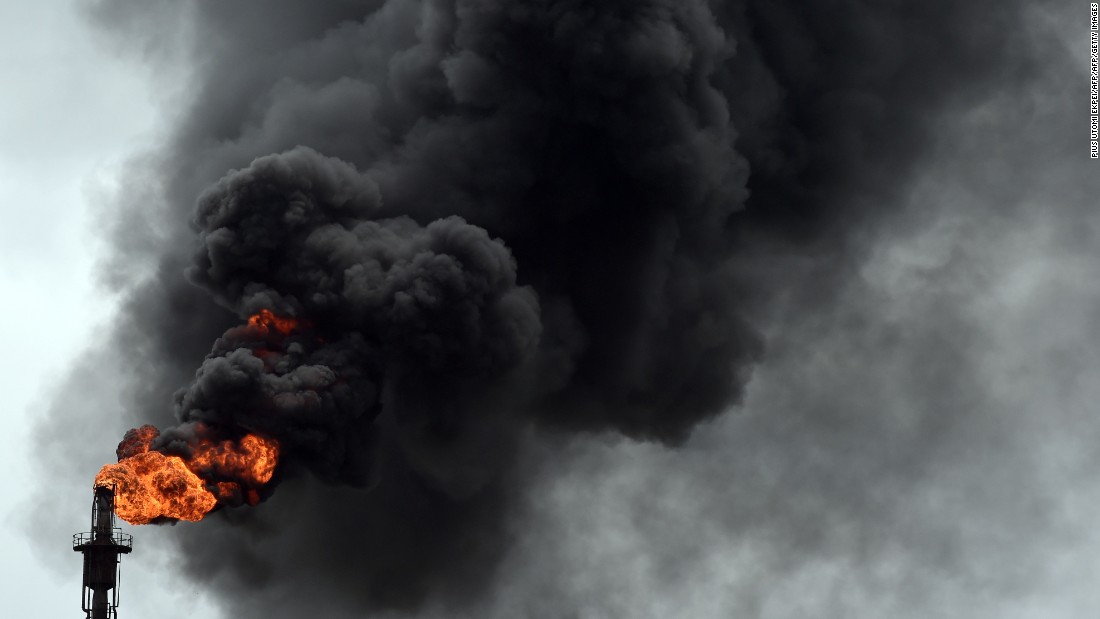The silent rage of air pollution in Nigeria
Air is an important and vital requirement for life. Air sustains life, but it can also snuff out life. With air one survives and lives; with air one could also die. So it all boils down to the quality of that air. Every living organism requires air for growth and survival. There is no life […]

Air is an important and vital requirement for life. Air sustains life, but it can also snuff out life. With air one survives and lives; with air one could also die. So it all boils down to the quality of that air. Every living organism requires air for growth and survival. There is no life without air. No air, no life on earth. Human beings need air to breathe because oxygen is the propeller that allows body cells to produce energy from the food we eat. The role air plays in human life cannot be overemphasized because it is the main reason for life.
Air is life, life is air. Air is naturally clean and safe for human and animals, but due to industrialization the air gradually becomes polluted making it unsafe for inhaling or breathing. Indoor or outdoor, one is at the risk of this polluted and unhealthy air because almost every breath taken here in Nigeria is like the breath of death.
Passing through Ile-Epo bus stop, just after Katangua (Super bus stop), along the Abeokuta-Lagos expressway in Lagos, one cannot but perceive the unbearable stench oozing out from the stagnant water in the drainage channels, particularly in front of the market area where food items are being sold. While some people say the disturbing smell is from the neighbouring dumpsite, Katangua, which houses heaps of refuse in that area, others say it is due to the blocked drainage channels. The contaminated and polluted air around that area has been so for over two months now. The toxic smell in that area has become a source of worry not only for the passers-by, but also for those who buy and sell at the Ile-Epo market, given the health challenge and risk this can potentially pose.
According to the World Health Organisation (WHO), in Lagos, an estimated seven million people died from diseases related to indoor and outdoor air pollution in 2012.
In a recent publication on an annual State of Global Air Report published by the Health Effects Institutes (HEI), air quality in Nigeria and at least 10 other countries is among the deadliest anywhere on earth with higher than ambient air pollution death rates as a result of the environmental hazards combined with extreme pollution sources like generator fumes, vehicle emissions and crop burning among others.
Air pollution is now the fourth-highest cause of death worldwide, with smoking, high blood pressure and poor diet topping the list. In Nigeria, air pollution is hardly listed among causes of deaths on death certificates, yet the effects of air pollution exposure such as lung cancer and other diseases are fatal and deadly. Air pollution is also known to cause heart and respiratory diseases, and damage to people’s nerves, brain, kidneys, liver and other vital organs.
To curb the rising threat of air pollution, a WHO Director, Department of Public Health, Environmental and Social Determinants of Health, Dr Maria Neira said: “Most sources of urban outdoor air pollution are well beyond the control of individuals and demand actions by cities, as well as national and international policymakers to promote cleaner transport, more efficient energy production and waste management.”
Ministries of Health, Environment and Agriculture are all urged to make air quality a health and development priority. For the rural dwellers, we advise that there should be an increased public awareness on the deadly consequences of polluted air in the household or outdoor. When the quality of air in Nigeria improves, health expenses incurred on air pollution-related diseases drop drastically, more lives are saved and life expectancy grows.
Kayode Ojewale writes from Idimu, Lagos.
